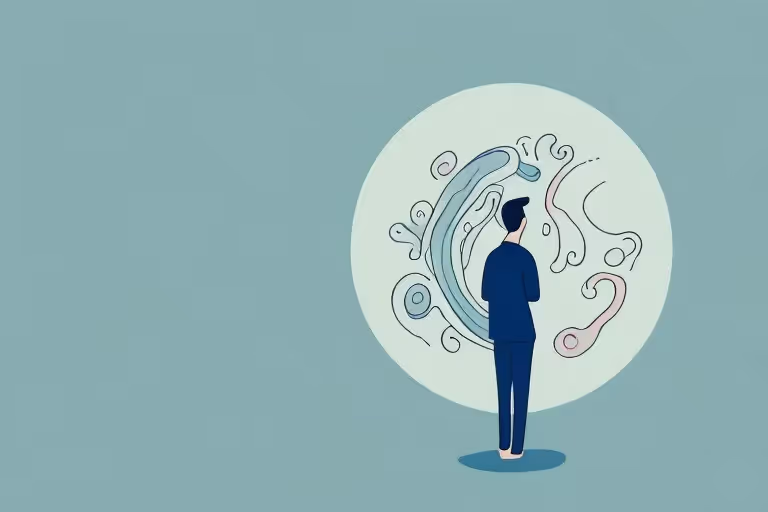In our fast-paced, ever-connected world, the concept of solitude may seem foreign to many. We constantly fill our days with work, social activities, and digital distractions, leaving little time for quiet introspection. However, there is a growing body of research that suggests that solitude, when approached consciously and mindfully, has profound benefits for the brain and overall well-being.
Understanding Solitude: A Psychological Perspective
At its core, solitude refers to the state of being alone. It is not about feeling lonely or isolated, but rather, it is a deliberate choice to spend time in one's own company. By willingly embracing this state, individuals can gain a deeper understanding of themselves and their thoughts.
The Concept of Solitude: An Overview
Solitude can take many forms, from a few minutes of quiet reflection to an extended solo retreat. It can be found in nature, in the comfort of one's home, or even in crowded places when we disconnect from external stimuli. It is a time when we can tune into our own thoughts and emotions, free from the influence of others.
Imagine yourself sitting on a secluded beach, the sound of crashing waves filling the air. The salty breeze gently caresses your face as you close your eyes, allowing your mind to wander. In this moment of solitude, you are able to detach from the chaos of everyday life and immerse yourself in the tranquility of nature. The vastness of the ocean mirrors the vastness of your thoughts, and you find solace in the realization that you are a small part of something much greater.
Alternatively, solitude can also be found within the four walls of your own home. Picture yourself in a cozy reading nook, surrounded by books that transport you to different worlds. As you delve into the pages, you become lost in the characters' lives, momentarily forgetting your own. This solitude allows you to explore different perspectives, expanding your understanding of the human experience.
Psychological Effects of Solitude
Research has shown that solitude can have numerous positive psychological effects. It allows us to recharge our mental energy, enhancing our ability to focus and concentrate. By being alone, we can also gain clarity of thought, making it easier to solve complex problems and make important decisions.
Imagine yourself sitting in a quiet room, surrounded by nothing but the soft hum of silence. In this moment of solitude, your mind becomes a canvas for creativity. Ideas flow freely, unencumbered by the distractions of the outside world. You find yourself effortlessly solving problems that once seemed insurmountable, as the clarity of thought that solitude provides allows you to see new perspectives and possibilities.
Furthermore, solitude provides an opportunity for introspection and self-reflection. It allows us to explore our inner thoughts and emotions, leading to enhanced self-awareness and personal growth. It can also serve as a refuge from the demands and expectations of social interactions, providing a much-needed respite for introverts and highly sensitive individuals.
Imagine yourself sitting in a peaceful garden, surrounded by blooming flowers and chirping birds. The gentle rustling of leaves creates a symphony of nature's melodies. In this moment of solitude, you find yourself delving deep into your own psyche, unraveling the intricacies of your thoughts and emotions. You gain a newfound understanding of your strengths and weaknesses, and you emerge from this solitude with a renewed sense of self and purpose.
In conclusion, solitude is not merely a state of being alone, but rather, it is a powerful tool for self-discovery and personal growth. Whether found in the serenity of nature or within the walls of our own homes, solitude allows us to recharge, gain clarity of thought, and explore the depths of our own being. By embracing solitude, we can cultivate a deeper understanding of ourselves and navigate the complexities of life with greater insight and resilience.
The Neuroscience Behind Solitude
While the psychological benefits of solitude are well-documented, researchers are also uncovering fascinating insights into the neuroscience behind this state of being alone.
The Brain's Response to Isolation
When we spend time in solitude, the brain's default mode network (DMN) becomes more active. This network is responsible for introspection, self-referential thinking, and autobiographical memory. In other words, it is the brain's way of focusing on itself and its own thoughts.
This increased activity in the DMN is associated with greater creativity, as our brains are free to wander and make novel connections. It also allows for increased self-awareness and introspection, helping us gain deeper insights into our own thoughts and emotions.
Neurochemical Changes in Solitude
Solitude also has a profound impact on the brain's neurochemical balance. Studies have shown that spending time alone can lead to increased production of dopamine, a neurotransmitter associated with pleasure and reward. This surge in dopamine can enhance our mood and overall well-being.
Additionally, solitude has been found to decrease the levels of cortisol, the stress hormone. This reduction in stress levels can have significant benefits for our mental and physical health, improving our resilience to stress and decreasing the risk of stress-related disorders.
The Positive Side of Solitude
While some may view solitude as a negative state, characterized by loneliness and isolation, research suggests that there is a positive side to being alone.
Solitude and Creativity: A Connection
Many creative individuals throughout history have sought solitude as a means to fuel their imagination. When we are alone, free from external distractions, our minds are more open to innovative ideas and unique perspectives.
Artists, writers, and musicians often retreat to secluded places to create their best work. It is in these moments of solitude that their creativity flourishes, as they tap into the depths of their inner thoughts and emotions.
Solitude as a Tool for Self-Reflection
Solitude allows us to step back from the noise of daily life and reflect on our values, goals, and priorities. It provides a space for self-discovery and personal growth, as we gain clarity about who we are and what truly matters to us.
This self-reflection can lead to increased self-confidence, as we become more in tune with our authentic selves. It also allows us to make better decisions that align with our values and lead to a more fulfilling life.
The Dark Side of Solitude: Loneliness and Isolation
While solitude can be a positive experience, it is essential to differentiate it from loneliness and excessive isolation. While solitude is a choice, loneliness is a feeling of sadness or distress that arises from a lack of meaningful social connections.
The Difference Between Solitude and Loneliness
Loneliness can occur even when surrounded by others, highlighting the importance of quality over quantity in our social interactions. It is not the absence of people that leads to loneliness, but rather the lack of genuine connection and understanding.
Excessive isolation, on the other hand, can have detrimental effects on our mental health. Humans are social beings, and we thrive on social connections. Without regular social interaction, we may experience feelings of sadness, anxiety, and depression.
Mental Health Risks of Excessive Isolation
Research has shown that prolonged periods of isolation can increase the risk of mental health disorders, such as depression and anxiety. It can also have negative effects on cognitive function, leading to decreased memory and problem-solving abilities.
However, it is important to note that these risks primarily apply to long-term and involuntary isolation, such as that experienced in extreme cases of solitary confinement or social isolation. Short periods of solitude, when balanced with social interaction, can have significant benefits for our well-being.
Balancing Solitude and Social Interaction for Mental Well-being
Finding the right balance between solitude and social interaction is key to maintaining optimal mental well-being.
The Importance of Social Interaction
Humans are social creatures, and our brains are wired for social connection. Engaging in meaningful and fulfilling social interactions has been linked to increased happiness, lower stress levels, and improved overall well-being.
Regular social interaction provides a sense of belonging and support, fostering feelings of happiness and contentment. It also allows us to learn from others, broaden our perspectives, and develop valuable interpersonal skills.
Finding the Right Balance: Solitude and Socialization
While social interaction is essential, so is time spent in solitude. Finding moments of solitary reflection can help us recharge our mental energy, enhance our creativity, and gain valuable insights into ourselves.
It is crucial to listen to our own needs and preferences, finding a balance that works uniquely for us. Some may thrive in large social gatherings, while others find solace in small, intimate conversations. Taking breaks from social interaction and embracing moments of solitude can contribute to our overall well-being.
So, the next time you find yourself with a few moments of idle time, don't automatically reach for your phone or seek out external distractions. Instead, consider embracing the power of solitude. Take a walk in nature, find a quiet spot in your home, or simply sit in silence. Your brain, and your well-being, will thank you.
Aura is Your All In One App for Meditation, Mindfulness Wellbeing
Find peace every day with one app for your whole well-being. There is no one-size-fits-all solution to mental well-being. Aura is the first all-in-one wellness app that learns how to best help you. Discover an endless library of expert-created tracks for your well-being, all taught by the world’s best coaches, therapists, and storytellers. With Aura's personalized recommendations, you can find peace every morning, day and night.



.webp)






.avif)

%20(1).avif)


.avif)
.avif)
.webp)


.avif)


















































































































.avif)

















.svg)









